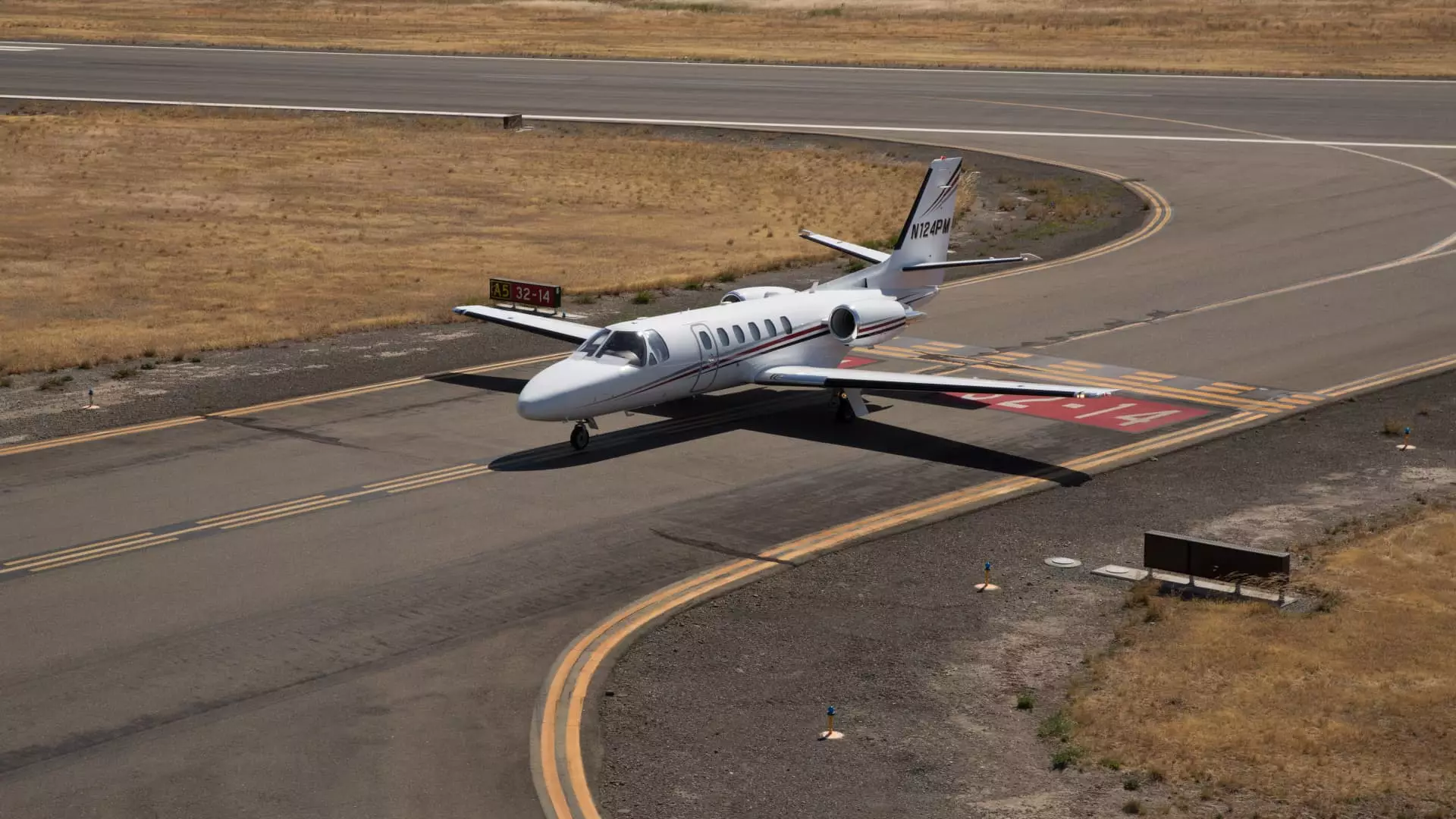In a world where opulence and convenience often intersect, the allure of private jet travel has recently suffered a significant blow, amplified by financial uncertainties and market volatility. The stark decline in consumer confidence has painted a bleak picture for the aviation sector, as evidenced by the alarming findings from Barclays’ recent survey of business jet broker-dealers and financiers. This survey illustrates a 49% plummet in customer interest for business jet purchases since March—a stark warning sign that even those with deep pockets are reining in their extravagant spending. Despite the luxurious reputation of private aviation, the reality is that even the wealthiest individuals are now grappling with economic fears.
The survey, conducted from April 9 to 15, garnered responses from 65 financial professionals in the industry, revealing a wide array of concerns impacting buying decisions. The composite score of the Barclays Business Jet Indicator revealed a significant decline from 52 to a troubling 40 within a month. This is not merely a statistical anomaly; it is a flashing red light indicating that the market is cooling at an alarming rate, reminiscent of waning consumer passion observed during previous economic downturns. David Strauss, a Barclays analyst, expressed disbelief at the severity of the drop, anticipating a slowdown but not one with such dramatic implications.
Market Metrics and the Shadow of Tariffs
The survey’s methodology, composed of five pivotal metrics—including future outlook and pricing—paints a dismal portrait: all but one metric, inventory levels, declined. Such widespread vulnerability is particularly troubling for an industry that thrives on constant growth and demand. Tariffs, a looming specter over the market, have exacerbated these concerns, with nearly 93% of respondents anticipating a negative impact on demand. Fear of not only tariffs themselves but their cascading effects on broader business operations has led to a significant number of clients placing order intentions on indefinite hold.
With 46% of participants disclosing deteriorating interest in business jet acquisitions, it begs the question: what does this mean for an industry built on high-net-worth clientele? Despite the resilience historically shown by luxury markets, current economic headwinds are revealing cracks in this sturdy facade. A mere 10% of respondents reported improved customer interest, highlighting a staggering vulnerability to market fluctuations—something that the once-untouchable prestige of private jets can no longer ignore.
A Tenuous Future: Legislative Hopes Amid Despair
Yet, amid this turmoil, a sliver of hope has emerged from the legislative arena. The potential extension of the Tax Cuts and Jobs Act could serve as a lifeline for aircraft manufacturers. This legislation, which previously allowed for immediate deductions on qualifying equipment purchases, might rejuvenate interest in business jet acquisitions. Republican lawmakers are cautiously eyeing the reinstatement of 100% deductions, a move that could resuscitate a faltering market and restore confidence among buyers by alleviating some financial burdens associated with new aircraft purchases.
However, the proposed budget resolution and its implications are fraught with complexity. The landscape of business aviation is one fraught with uncertainty, and legislative actions risk being heavily polarized by partisan divides. While the prospect of retroactive deductions offers a glimmer of optimism, the reality of its implementation hangs precariously in the balance.
A Shaken Luxury Landscape
Overall, the current state of the business jet market forces a critical reevaluation of what it means to navigate luxury in times of economic distress. The dual pressures of dwindling consumer confidence and the adverse effects of tariffs compel us to question the sustainability of an industry that was once seen as immune to such fluctuations. As high-net-worth individuals reconsider their positions, the once-booming aviation sector may be facing an inflection point, calling into question its future viability and growth trajectories.
While legislation may help bolster the market momentarily, the long-term health of luxury air travel requires more than fleeting fixes; it needs a profound reassessment of the economic realities facing potential buyers today. The extravagant lifestyle of business jets may be resilient, but it is undoubtedly not impervious to the shifting dynamics of consumer sentiment and market conditions.



Leave a Reply